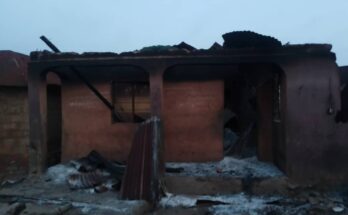Sporadic attacks against the media by government at all levels and harassment of their foot soldiers in line of duty in Nigeria have become a source of worry to right thinking individuals and corporate persons. Socio-Economic Rights and Accountability Project (SERAP) is one of such individuals fighting against media harassment in the country. In this piece, KEHINDE OSASONA documents some of the efforts so far made by NGOs including SERAP to extricate the media from government’s jackboot.
Against the backdrop of incessant attacks against the media, Nigerian journalists recently under the aegis of the Nigerian Union of Journalists (NUJ) marched across different states in the country to protest needless harassment and victimization of their members by security agents in the course of discharging their constitutional duties of holding government accountable to the public.
The protest which was in line with the National Secretariat directive was staged to raise awareness and gain more support to fight impunity against the media.
.
For instance, in Abia State, journalists protested on the street by carrying placards with various inscriptions like: “Stop harassing journalists”, “Journalism is legitimate and a legal profession”, “FG should stop intimidation of media men”, “Democracy cannot survive without media,” amongst others.
Similarly, media practitioners led by Qasim Akinreti in Lagos marched to the state governor’s office in Alausa with a copy of a letter expressing their displeasure over the molestation of their members and with different placards that buttressed the purpose for the protest.
The situation was the same in Zamfara State with Zamfara branch of NUJ addressing a letter to President Muhammadu Buhari titled “Protection of Nigerian Journalists.” The acting chairman of the NUJ, in Zamfara State, Abubakar Ahmed, said, “We abide by the resolutions contained in the letter regarding needs for government at all levels to implement declaration of principles in Freedom of Expression in Africa, which says clearly that ‘No one shall be subject to arbitrary interference with his or her freedom of expression,” the letter said.
Aligning with the media, the Socio – Economic Rights and Accountability Projects (SERAP), a non-governmental organization has consistently insisted that there can be no freedom unless thought is free and unrestricted.
Fighting for press freedom
In justifying its claims, the organization had in a petition dated June 9, 2014 and signed by its executive director, Adetokunbo Mumuni, said, it had “continued to receive information about continuing threats against and harassment of independent media houses solely for exercising their rights to freedom of expression and the media.”
The organization said, “By this action, the government is exerting pressure on the media houses. This demonstrates the government’s increasing intolerance for the peaceful exercise of the rights to expression, opinion, information, association and assembly by the citizens.
“This action also contradicts the fundamental principles of pluralism, tolerance and broadmindedness, without which there can be no democratic society
“As such, the right to freedom of expression can be described as an essential test right, the enjoyment of which illustrates the degree of enjoyment of other human rights.”
When NUJ, UNESCO collaborated on ‘Press Freedom’
Going beyond rhetoric, former President of the NUJ, Waheed Odusile, had called on the Federal Government to re-open investigations on the killing of journalists, and in particular the case of Dele Giwa, founder of Newswatch Magazine, who was killed on 19 October 1986 by a letter bomb, to ensure that the perpetrators are brought to justice.
That was in 2015 while commemorating the world International Day to End Impunity for Crimes against Journalists organized by UNESCO/NUJ in Abuja,
Odusile listed other journalists who were killed, attacked, kidnapped and detained from 2006 to 2015 and asked for more concrete measures from the authorities to apprehend the perpetrators of the acts, saying recent developments in the country have further raised concerns about the safety of journalists and the large number of media professionals working without insurance.
While delivering the message of the Director General of UNESCO, Irina Bokova, the Culture Specialist at the UNESCO Abuja Regional Office, Ms Adele Nibona, urged the nation to take all the necessary measures through legislation, protection mechanisms and new adequate resources to ensure that investigations and trials relating to crimes against journalists are undertaken.
Ecowas Court to the rescue
Against the backdrop of continuing attack against the media by government and the efforts by NUJ to halt intimidation of its members, SERAP had approached a law court vide a public interest litigation for a reprieve.
In the suit number ECW/CCJ/APP/09/19 filed by its Solicitor, Femi Falana, SAN is arguing that: “The Federal Government and several state governments and their agents have trampled on the rights to freedom of expression and information of bloggers, journalists, activists, and social media users through the repressive use and implementation of the vaguely worded provisions of the Cybercrime Act.
“The fundamental question for the court is whether the federal and state governments, by using and applying the Cybercrime Act and other similar laws on cyberstalking and sedition to prosecute journalists, bloggers and activists over perceived critical views, violate the rights to freedom of expression and access to information.
The suit further frowns at abusive and repressive use of the vaguely worded provisions of the Cybercrime Act to stifle and muzzle journalists, bloggers and other media practitioners, saying it is an affront and dangerous to the rule of law and protection of the human rights of people.
Other arguments advanced by SERAP in the suit are that: Stories published online have been deemed ‘offensive’, ‘obstructive’, ‘insulting’ or ‘annoying’ with actionable consequence under section 24 of the Act even when the stories are true, correct and factual.
Although proceedings is on-going in the case, time will tell to what extent the lawsuit will address the media challenge



